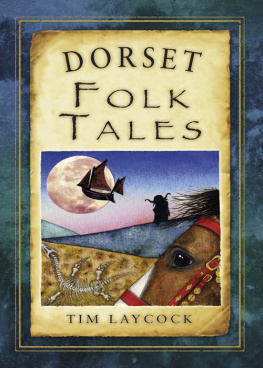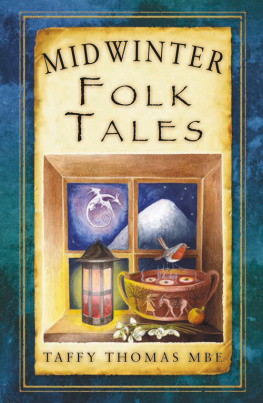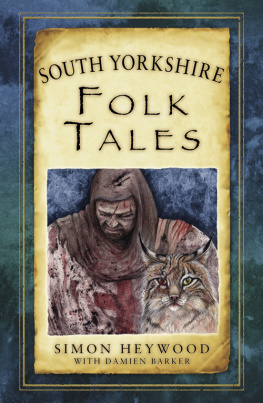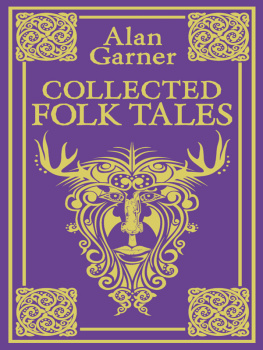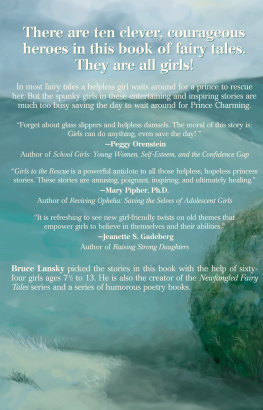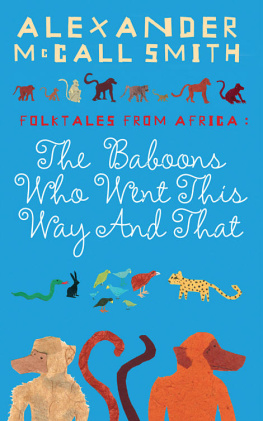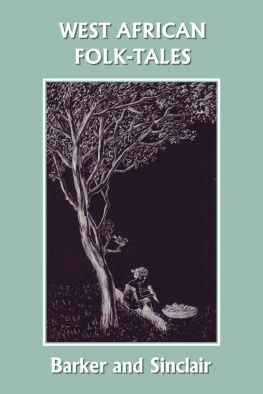Library of Congress Cataloging-in-Publication Data
West African folk tales / [compiled by] Hugh Vernon-Jackson ; illustrated by
Patricia Wright.
p. cm.
Unabridged republication of the text and illustrations from West African Folk
Tales, Books One and Two (1958), and More West African Folk Tales, Books
One and Two (1963)T.p. verso.
Summary: Presents twenty-one traditional tales from West Africa, including
The Greedy but Cunning Tortoise, The Boy in the Drum, and The Magic
Cooking Pot.
9780486149813
1. TalesAfrica, West. 2. TalesNigeria. [1. FolkloreAfrica, West.]
I. Title: West African folktales. II. Vernon-Jackson, Hugh. III. Wright, Patricia,
ill. IV. More West African folk tales.
PZ8.1.W4875 2003
398.20966dc21
2002041722
Manufactured in the United States of America
Dover Publications, Inc., 31 East 2nd Street, Mineola, N.Y. 11501
Preface
MANY FOLK TALES from many different parts of the world express similar ideas and sometimes have much the same narrative. Is this yet another example of a universal brotherhood of man, of peoples? African stories are no exception to this; nor are those from Nigeria, which make up this collection.
Some of these stories might in one way or another be familiar to the reader. Part of the pleasure of hearing or reading folk stories is the sense of reminiscence; and also the expectation of what events one feels almost sure are going to happen.
Most of these folk tales were collected from school children in West Africa. They are stories the children themselves liked to tell. The stories are the adventures of men, women, and children as well as those of lions, monkeys, tortoises, and birds. As in many folk tales, there are lessons to be learnt. It appears that wrongdoing does not really succeed, while doing right will triumph in the end.
I am indebted to the many young African men and women who helped in the telling and in the collection of these stories which are from many tribes and many places and are meant to be read for enjoyment.
Although the stories were collected from people of Nigerias Northern, Eastern, and Western Regions, they should also be of interest in Ghana and other countries, for folk tales are world-wide, and there have been folk tales among all of us ever since the world began.
HUGH VERNON-JACKSON
The Story of a Hunter and his Antelope Wife
Once upon a time there lived a hunter. He knew much about the ways of animals, but not enough to keep his antelope wife.
One day when he was out hunting in the forest he came to a pool where animals used to come to drink. The hunter hid himself, and while he was watching, a herd of antelope appeared. He prepared his bow and his arrows, but the antelopes did not bend their heads down to drink. Instead, they took off their skins and changed their shapes to become like human beings. They dressed themselves in fine clothes, and the hunter heard them say to each other that they were going to the nearby market.
After they had gone, the hunter went to where they had hung their skins.
I shall take one of these skins, said the hunter to himself, and then I shall wait to see these strange antelopes when they come back.
The hunter chose the best skin, and then climbed into a tall tree overlooking the pool.
When evening came and the sun was setting, the creatures returned. They took their skins, put them on over their human forms, and became antelopes again. But one of them, who was in the shape of a young and beautiful woman, could not find her skin.
The other antelopes helped her look for her skin. But it was nowhere to be found because the hunter had taken it. Finally, the antelopes went on their way, leaving behind the one who could not find her skin.
The antelope woman began to cry, and the hunter, seeing that all the other antelopes had gone, came down from the tree in which he had been hiding.
Why are you crying, young woman? the hunter asked.
At first the antelope woman would not tell him.
You can trust me to keep your secrets, the hunter promised her.
At last the antelope woman admitted that she had lost her skin which would have made her an antelope again.
I now have no home and do not know what to do, she cried.
You must marry me, said the hunter, and he told her about his family and that she would be welcome in his compound.
Your other wife will learn my secrets from you, said the antelope woman.
The hunter assured her that his other wife would never be told about her secrets. Finally, the antelope woman agreed to marry the hunter. He then admitted that it was he who had taken her skin, but she said she would still marry him. Thus she followed him along the paths of the forest back to his compound.
Where does your new wife come from? the hunters first wife asked, but the hunter never told her the truth. Sometimes he said she was the daughter of another hunter; sometimes he said she came from a distant village on the other side of the forest.
The hunter and his new wife lived happily together for some years, and they had three children. However, the hunters first wife was always curious about the wife who had been brought out from the forest.
Where is your fathers home? she asked the antelope woman many times.
Far away, the antelope woman told her, but never said anything more.
One day, the hunters first wife made some very excellent palm wine from the juices of a palm tree which a man had sold to her. It was such good-tasting palm wine that the hunter drank too much of it. The first wife saw her chance.
Tell me, husband, she asked, tell me where your second wife really comes from.
The hunter was not in control of his senses. After a little more urging he told all the secrets of his antelope wife.
The next day the two wives quarrelled. They quarrelled about how much rice and soup made of meat should be given to the antelope womans three children and how much to the first wifes children who were bigger and older. The first wife became very angry.
Do not be so proud, she cried, you are only an antelope and your skin is hanging from the roof in our husbands room.
The antelope woman, seeing that her secret had been discovered, decided to return immediately to the forest. Quickly, she went to her husbands room and took down the skin from where it had been hanging. She soaked the skin in a pot of water and measured it to the size of her body; she soaked it and pulled it until it fitted her once again and she changed herself back to the shape of an antelope. Meanwhile, her husband and her three children were away, working on their ground-nut farm.





